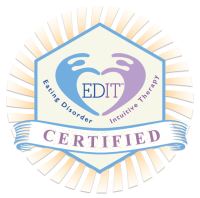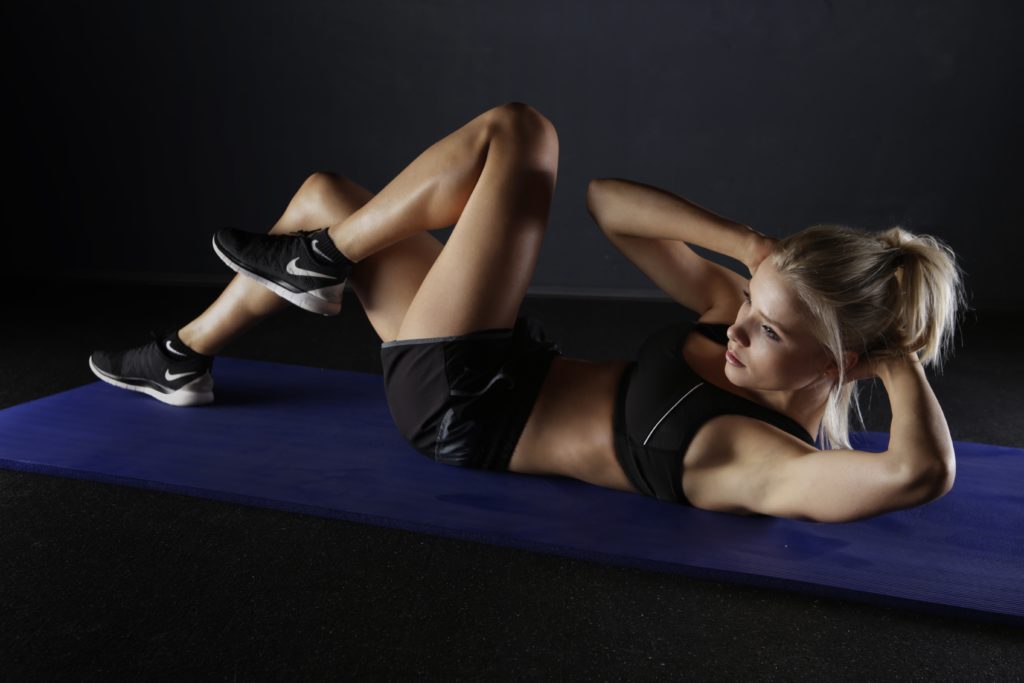Fitness Modeling and Eating Disorders
I’d like to introduce you to Emily Johnson, who is a Registered Psychotherapist and an EDIT™ Certified III – Eating Disorder Treatment Clinician. Emily completed her internship and continued to work under my supervision for several years, at my previous office location in Denver, Colorado. She is a knowledgeable and compassionate clinician, who is passionate about helping athletes in recovery from eating disorders. She is an amateur athlete who has overcome her own eating disorder, and finds “intuitive exercise” to be a healthy part of her recovery.
– Dr. Dorie
There are many things about the world of fitness modeling that makes an eating disorders therapist cringe. Most notably, there’s the very strict dieting, and also the large amount of time spent on intensive workouts at the gym. Less obvious – but extremely concerning – are the body image issues that arise from quests for physical perfection, as well as comparisons with other fitness models, along with judgments during competitions and photo shoots. And then there are those who are not fitness models, but who compare themselves to the images of fitness models in magazines. Stacking yourself up against another person, who may or may not be healthy in their pursuit of perfection, is never helpful.
As an eating disorder therapist, I’ve worked with many current, former, and prospective fitness models, and while I do believe that some people can navigate that world unscathed, for many it is a slippery slope into dangerous waters, and many don’t know how far down they’ve gone.
So what makes the difference between a healthy approach to fitness modeling, and an eating-disordered approach to becoming a fitness model? The most important thing to consider is the motivation for fitness modeling. Is it the external validation? A desire to look like someone you saw on the internet or in a magazine? To make an ex-partner jealous? A desire for the “perfect” body? Or, for the enjoyment of challenging yourself?
Another area to consider is eating. If you are a fitness model, ask yourself how you feel if or when you eat something not on your meal plan. Would you even dare let yourself? Do you shrug it off, or do you try harder the next day to cut calories, reduce carbs, or spend an extra half hour working out to compensate? And if you do go off your meal plan, does that mean the rest of the day is blown and you might as well eat as much as you can before tomorrow when you vow to be extra strict?
Answering “yes” to questions like these is a red flag that you are heading into an unhealthy relationship with food, disordered eating, or a full-blown eating disorder – carefully justified within the structure of training and meal plans.
Perhaps you’re not a fitness model, but you can relate to the quest for body perfection. You may be waiting until you get in shape to feel better about yourself, to be more confident, to start dating, to try something new, and so on. Maybe you tell yourself, “I’ll wear that when…”, or “I’ll hang out at the beach when…”, or “I’ll start dating when…” These are signs of an unhealthy body image. These are the motivations that will lead you on an elusive quest for happiness, when the key is to learn how to love the body that you have.
If you read this article and wonder if you might have a problem, or know you have a problem, there is hope. It is possible to have a healthy relationship with food, feeling freedom from rigid meal plans. It is possible to go to the gym because you want to, not because you have to – and to find enjoyment in the challenge, not in how others judge you. It is possible to love your body regardless of what weight, size, or body fat percentage is.
*****
Looking for guidance with INTUITIVE EXERCISE? EMILY JOHNSON, MA (the author of this blog article) is an EDIT™ Certified III – Eating Disorder Treatment Clinician, and is currently employed by an eating disorder treatment center. Although she does not work with clients unless they are patients at the center, Dr. Dorie is available to meet 1-on-1 with athletes with eating disorders.
Interested in a FREE consultation with Dr. Dorie? Dr. Dorie is passionate about her method of Eating Disorder Intuitive Therapy (EDIT)™ to help people overcome eating disorders and addictions. She provides customized counseling for eating disorders and alcohol / drug addiction at her Positive Pathways treatment center in Evergreen, Colorado – and EDIT™ eating disorder training and certification for coaches and clinicians worldwide. CALL 303-494-1975 – EMAIL DR. DORIE

